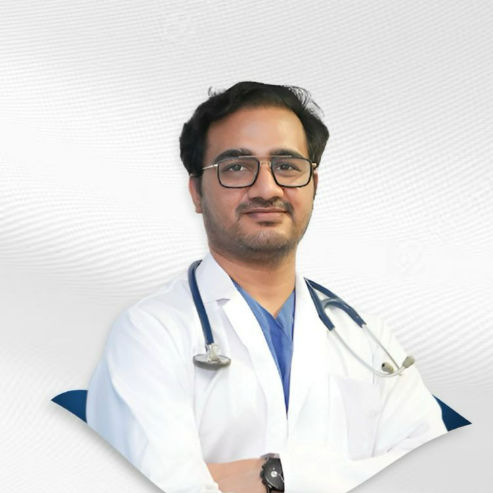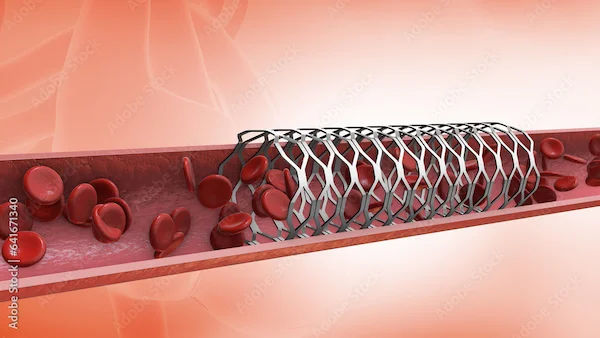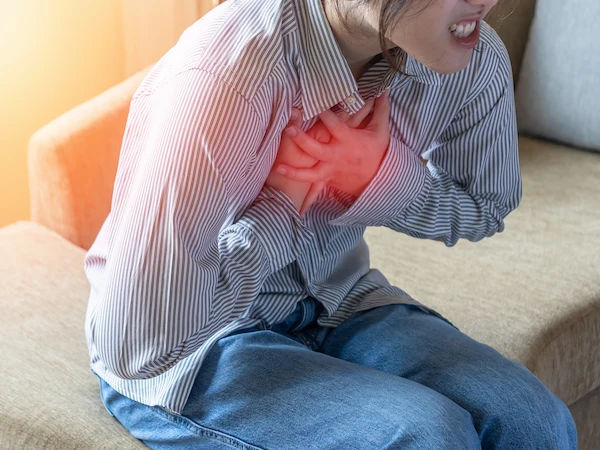Recovery After Bypass Open Heart Surgery
Essential guide to recovery after traditional open-heart bypass surgery. Learn about the healing process, cardiac rehab, managing symptoms, and returning to daily life.

Written by
Last updated on 10th Jul, 2025

Introduction
Undergoing bypass open heart surgery is a major step toward improving heart health, but the recovery process requires patience, care, and dedication. Whether you’re a patient or a caregiver, understanding what to expect after surgery can help ensure a smooth and successful recovery.
This article will guide you through the recovery journey—covering healing timelines, lifestyle adjustments, and tips to regain strength safely.
What to Expect After Bypass Surgery?
1. Hospital Stay (5-7 Days)
After surgery, you’ll spend a few days in the hospital under medical supervision. Here’s what typically happens:
ICU Monitoring (1-2 Days): You’ll be closely watched for heart function, breathing, and pain management.
Transition to Regular Ward: Once stable, you’ll move to a recovery room where nurses will help you sit, walk gently, and start breathing exercises.
Pain & Discomfort: Some soreness around the chest incision is normal, but medications will help.
2. Early Recovery at Home (First 4-6 Weeks)
Once discharged, your focus should be on rest and gradual movement:
Incision Care: Keep the surgical area clean and dry. Follow your doctor’s instructions on wound care.
Limited Activities: Avoid lifting heavy objects (>5 kg), driving, or strenuous tasks.
Walking Daily: Short, slow walks help improve circulation and prevent complications like blood clots.
3. Long Term Recovery (6 Weeks to 6 Months)
Full recovery takes time, but you’ll gradually regain strength:
Cardiac Rehabilitation: A structured program (exercise + education) helps strengthen the heart safely.
Returning to Work: Most patients resume light work in 68 weeks; physically demanding jobs may take longer.
Follow Up Visits: Regular checkups ensure your heart is healing well.
Common Challenges & How to Manage Them
1. Fatigue & Weakness
Why it happens: Your body is healing, and energy levels may be low.
Solution: Rest when needed, but stay active with short walks.
2. Mood Swings & Anxiety
Why it happens: Surgery can be emotionally draining; some patients feel anxious or depressed.
Solution: Talk to loved ones, join support groups, or seek counseling if needed.
3. Swelling or Numbness (Legs/Arms)
Why it happens: Fluid retention or nerve irritation from surgery.
Solution: Elevate legs, wear compression stockings, and move gently.
4. Loss of Appetite
Why it happens: Medications or stress can reduce hunger.
Solution: Eat small, frequent meals rich in protein (eggs, lentils, yogurt).
Consult Specialists For personalised Tips
Lifestyle Changes for a Healthy Heart
The lifestyle changes for a healthy heart are:
1. Heart-Healthy Diet
Eat More: Fruits, vegetables, whole grains, lean proteins (fish, chicken), and nuts.
Avoid: Excess salt, sugar, fried foods, and processed meats.
2. Gentle Exercise (As Recommended)
Start with walking, then slowly increase activity under medical guidance.
Avoid heavy lifting or intense workouts until cleared by your doctor.
3. Quit Smoking & Limit Alcohol
Smoking slows healing and increases heart risks. Seek help to quit if needed.
Alcohol in moderation (if approved by your doctor).
4. Stress Management
Practice deep breathing, meditation, or yoga to stay calm.
Get enough sleep (7-8 hours daily).
When to Seek Medical Help?
Contact your doctor immediately if you experience:
Severe chest pain (not relieved by rest)
High fever or infection signs (redness, pus at incision site)
Shortness of breath or dizziness
Irregular heartbeat
Final Thoughts
Recovering from bypass surgery is a journey, but with the right care, you can return to a healthy, active life. Follow your doctor’s advice, stay positive, and take it one step at a time. If you need guidance, Apollo 24|7 offers expert cardiac care and rehabilitation programs. You can book a consultation or schedule followup tests easily through their app or website.
Consult Top Cardiologists
Consult Specialists For personalised Tips

Dr. Anand Ravi
General Physician
2 Years • MBBS
Bengaluru
PRESTIGE SHANTHINIKETAN - SOCIETY CLINIC, Bengaluru

Dr. Tripti Deb
Cardiologist
40 Years • MBBS, MD, DM, FACC, FESC
Hyderabad
Apollo Hospitals Jubilee Hills, Hyderabad
Dr Moytree Baruah
Cardiologist
10 Years • MBBS, PGDCC
Guwahati
Apollo Clinic Guwahati, Assam, Guwahati

Dr. Zulkarnain
General Physician
2 Years • MBBS, PGDM, FFM
Bengaluru
PRESTIGE SHANTHINIKETAN - SOCIETY CLINIC, Bengaluru

Dr. Janjirala Seshivardhan
Cardiologist
7 Years • MBBS,DNB(GM),DM(Cardiology)
Manikonda Jagir
Apollo Clinic, Manikonda, Manikonda Jagir
Consult Top Cardiologists

Dr. Anand Ravi
General Physician
2 Years • MBBS
Bengaluru
PRESTIGE SHANTHINIKETAN - SOCIETY CLINIC, Bengaluru

Dr. Tripti Deb
Cardiologist
40 Years • MBBS, MD, DM, FACC, FESC
Hyderabad
Apollo Hospitals Jubilee Hills, Hyderabad
Dr Moytree Baruah
Cardiologist
10 Years • MBBS, PGDCC
Guwahati
Apollo Clinic Guwahati, Assam, Guwahati

Dr. Zulkarnain
General Physician
2 Years • MBBS, PGDM, FFM
Bengaluru
PRESTIGE SHANTHINIKETAN - SOCIETY CLINIC, Bengaluru

Dr. Janjirala Seshivardhan
Cardiologist
7 Years • MBBS,DNB(GM),DM(Cardiology)
Manikonda Jagir
Apollo Clinic, Manikonda, Manikonda Jagir

_3.webp)


